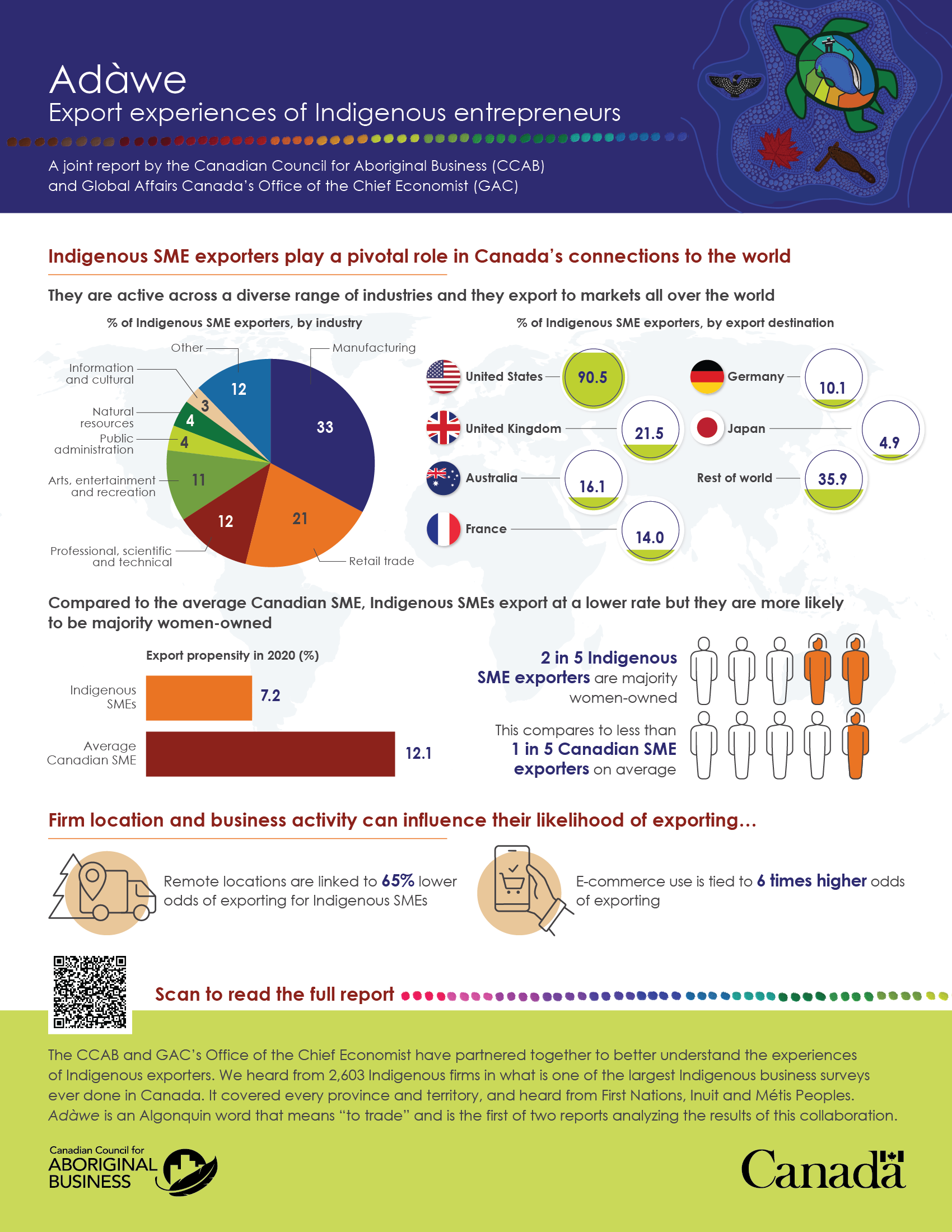Adàwe: Export experiences of Indigenous entrepreneurs

Text version - Adàwe: Export experiences of Indigenous entrepreneurs
A joint report by the Canadian Council for Aboriginal Business (CCAB) and Global Affairs Canada’s Office of the Chief Economist (GAC)
Indigenous SME exporters play a pivotal role in Canada’s connections to the world
They are active across a diverse range of industries and they export to markets all over the world
% of Indigenous SME exporters, by industry:
- Manufacturing: 33%
- Retail trade: 21%
- Professional, scientific and technical: 12%
- Arts, entertainment and recreation: 11%
- Public administration: 4%
- Natural resources: 4%
- Information and cultural: 3%
- Other: 12%
% of Indigenous SME exporters, by export destination:
- United States: 90.5%
- United Kingdom: 21.5%
- Australia: 16.1%
- France: 14.0%
- Germany: 10.1%
- Japan: 4.9%
- Rest of world: 35.9%
Compared to the average Canadian SME, Indigenous SMEs export at a lower rate but they are more likely to be majority women-owned
Export propensity in 2020 (%):
- Indigenous SMEs: 7.2%
- Average Canadian SME: 12.1%
2 in 5 Indigenous SME exporters are majority women-owned. (This is depicted with a diagram of five figures, two of which are coloured in orange.)
This compares to less than 1 in 5 Canadian SME exporters on average. (This is depicted with a diagram of five figures, with less than one coloured in orange.)
Firm location and business activity can influence their likelihood of exporting…
Remote locations are linked to 65% lower odds of exporting for Indigenous SMEs.
E-commerce use is tied to 6 times higher odds of exporting.
Scan to read the full report. The QR code links to the following URL: https://www.international.gc.ca/trade-commerce/inclusive_trade-commerce_inclusif/indigenous-autochtone/export-experiences-exportation.aspx?lang=eng
The CCAB and GAC’s Office of the Chief Economist have partnered together to better understand the experiences of Indigenous exporters. We heard from 2,603 Indigenous firms in what is one of the largest Indigenous business surveys ever done in Canada. It covered every province and territory, and heard from First Nations, Inuit and Métis Peoples. Adàwe is an Algonquin word that means “to trade” and is the first of two reports analyzing the results of this collaboration.
The infographic ends The Canadian Council for Aboriginal Business’ logo and the Canadian federal government logo.
- Date modified: